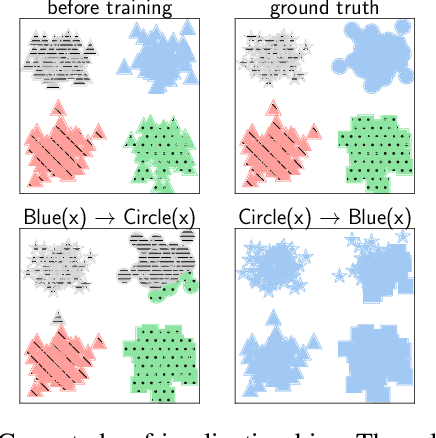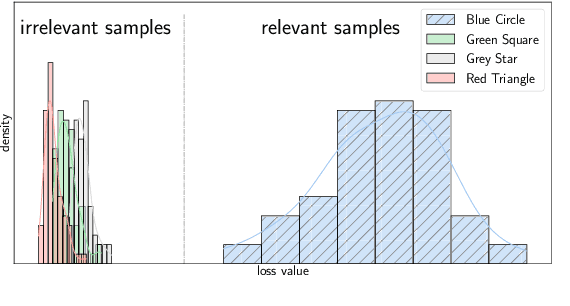Reduced Implication-bias Logic Loss for Neuro-Symbolic Learning
Paper and Code
Aug 14, 2022



Integrating logical reasoning and machine learning by approximating logical inference with differentiable operators is a widely used technique in Neuro-Symbolic systems. However, some differentiable operators could bring a significant bias during backpropagation and degrade the performance of Neuro-Symbolic learning. In this paper, we reveal that this bias, named \textit{Implication Bias} is common in loss functions derived from fuzzy logic operators. Furthermore, we propose a simple yet effective method to transform the biased loss functions into \textit{Reduced Implication-bias Logic Loss (RILL)} to address the above problem. Empirical study shows that RILL can achieve significant improvements compared with the biased logic loss functions, especially when the knowledge base is incomplete, and keeps more robust than the compared methods when labelled data is insufficient.
 Add to Chrome
Add to Chrome Add to Firefox
Add to Firefox Add to Edge
Add to Edge